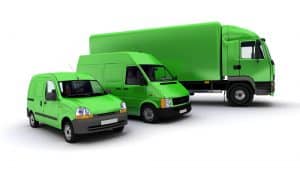The world of fleet has never seen such a period of change. With uncertainties around tax rates, the WLTP and changes with the ULEZ becoming 24/7. Reducing your fleet’s CO2 emissions should be a big priority. More changes are set to come in future years, so fleets need to be prepared.
Reducing carbon emissions is in the hands of the fleet managers. Whilst you still may be a few years away from switching to EVs, small changes within the existing system can make a huge difference without much capital investment, and no change is too marginal.
1. Review your vehicle habits
While it may seem obvious, innovation in your choice of vehicles should be the biggest change. Even now, many firms are in the habit of using petrol-guzzlers without paying attention to economic factors such as fuel consumption and CO2 emissions.
Match the vehicle to the job: There’s no need to send out a lorry or van to deliver goods that require the horsepower of a bike. It’s a good idea to invest in a smaller vehicle for smaller deliveries, if you feel this may be something your fleet is prone to.
There’s no need to compromise on performance: there are many vehicles offering less than 160g/km and fuel consumption above 45mpg. A fresh assessment on this can contribute to long-term financial savings, as well as reducing CO2 emissions.
2. Review your fleet policy
Where can you update your policy? Could you challenge the status quo? Many fleets operate under systems that have been in place for years. It’s crucial to keep up to date in one of the fastest changing industries in the UK.
You should also set new internal standards for vehicles and putting progressive CO2 targets in place, setting the company up for long-term savings in the instance of future law changes and tax requirements.
Investing in the best possible sat nav systems will also prevent your drivers from wasting valuable fuel if they take a wrong turn. Even if your navigation system has been in place for years, exploring updated versions can make a huge difference.
3. Don’t be weighed down
Eliminating just 45kg of excess weight can increase fuel efficiency by up to 2%. Consider downsizing or leaving unnecessary items such as roof racks and tool boxes back at the depot.
4. Under pressure
The importance of monitoring tyre pressure regularly is often overlooked as a factor affecting emissions, but a small change can make a big difference in this area. Too little pressure can lead to a higher rate of rolling resistance, making the engine work harder and consume extra fuel as a result. You should encourage your drivers to undertake regular checks on their vehicle, to make sure things like this are in check.
If you want to start saving your diesel & petrol bills, then look no further than our own BP fuelcard, for more information, click here: https://www.fuelcardservices.com/brand-bp/



